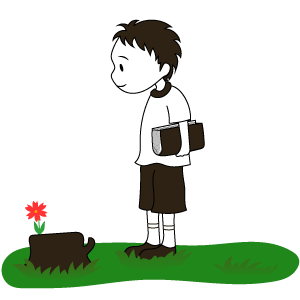If you ask me if books have rivals to begin with, you are right, but in the sense of spending time, rivals do exist. For example, TV, movies, games, social networking sites, etc. You might say entertainment in general.
When television began to spread, it was said that a powerful rival to books had emerged. That it would take away a lot of reading time. Eventually, it was even said that people really stopped reading books because of television. And the next major enemy that emerged would be video games.
And then, more recently, social networking sites and YouTube may have emerged. Thus, rather than decreasing the number of rivals to the book, new, more powerful, upwardly compatible rivals are appearing one after another, adapting to people’s tastes and tastes.
Of course, new platforms such as e-books and unlimited-reading services have emerged to compete with books, but we rarely hear of any dramatic increase in the number of people reading books. The situation is such that it is all we can do to prevent a decrease in the number of readers.
Furthermore, even television and video games, which used to be the enemies of books, are gradually being driven into decline by the advent of smartphones.
Now, everything that appeared to be an enemy of the book, let alone the book, has been contained within that little box. In that sense, the smartphone may be the universal box.
There will be things that surpass the smartphone in the future, such as VR and meta-space, but the smartphone’s dominance will continue for the foreseeable future.
Perhaps even more smartphone-like functions will be upgraded, becoming something like the Dragon Ball scouter (a computer like a pair of glasses), and the day may come when even the smartphone will end its role.
Returning to books, paper books will naturally remain. However, the act of reading will compete for market share as an application (Kindle, etc.) in the “competition for time” that is the smartphone.
What is the first thing people do when they pick up their smartphones, and what do they spend the most time doing? How many of them will read e-books, or for that matter, will they put down their smartphones and bother to pick up a paper book? No matter how you look at it, there is no doubt that the content of novels is not quite as good as it could be. Looking back myself, the first thing I do is open Twitter.
For those who write novels, writing good works (contents) is of course a prerequisite. However, I believe that the time has come when we need to be more resourceful in how we deliver our works to the readers.
There is no need to go to such lengths to get a large number of people to read your work. There is a certain number of people who read in every age, and some people say that we should write for them.
But do we get people, especially young people, who have access to today’s all-powerful machine, the smartphone, to read our novels? If we fail to make that effort, I think literature will really disappear (although classic literature will remain).
It is quite a challenge to turn people who will gladly spend time on Instagram, TickTok, with a smartphone in hand, to novels.
Even Mr. Naoki Momota, the author of a string of bestsellers including “The Pirate Man,” is said to have walked around bookstores across the country to sell his books.
As I mentioned in my self-introduction, writing articles on the “note” platform is one of my tragic attempts to somehow get people to read my work (although there are other ways, such as literary flea markets).
Anyway, in order to get people interested in my works, I even go out of my way to put up bad haiku and poems, but I started it with the intention of letting people know my human nature.
I started this site with the intention of letting people get to know me as a person. If you ask me what I can tell about you through my mediocre haiku and poems, that’s the end of the story, but if I do my best to express myself in all possible forms, I think you will get a vague, but complete picture of who I am.
In the end, I hope that people will be willing to read my books.
Of course, as a novelist, the ideal would be to write only one book, like Haruki Murakami. And essays would be collected and published in magazines and other publications.
But that is a story for a limited number of novelists, and unfortunately, I don’t have that kind of ability or prestige right now. If that is the case, I have no choice but to be hungry and fight like a guerrilla soldier. Of course, there is no guarantee that I will win.
The novelist Kanoko Okamoto (mother of Taro Okamoto) once said, “The act of writing a novel is to lie completely naked on the street.
Of course, it is no use talking if the work, the essential work that you are trying to get people to read, is not done properly, and it would be a real waste of time to spend a great deal of time on those who are interested in the work.
From now on, it is time to create the work. And time to work hard to get people to read your work. The person who can allocate the time well may be the one who succeeds in the world of literature (the world of expression) in the future (of course, it is not enough just to sell well).
I cannot make a grandiose statement about the “restoration of literature,” but I will do my best to ensure its survival.
See you soon!












